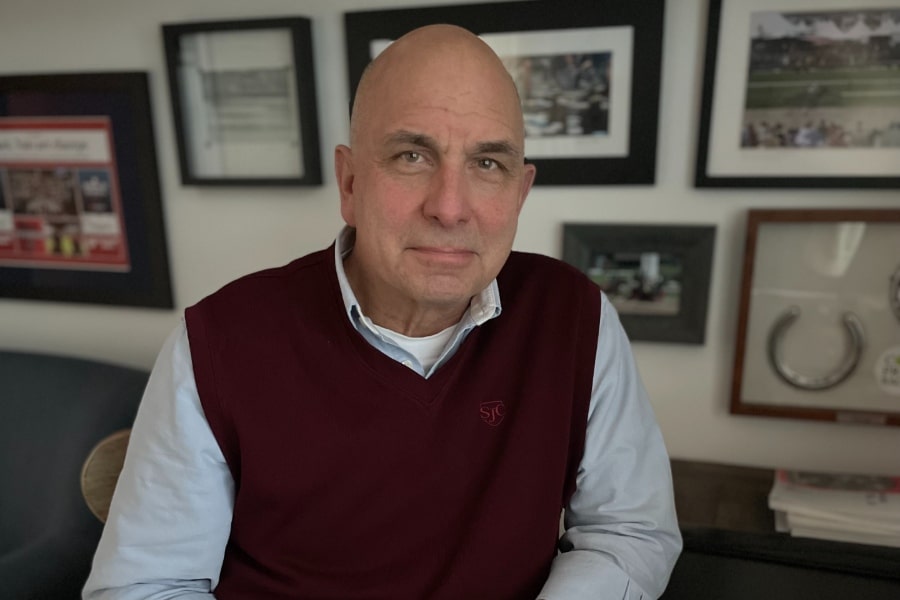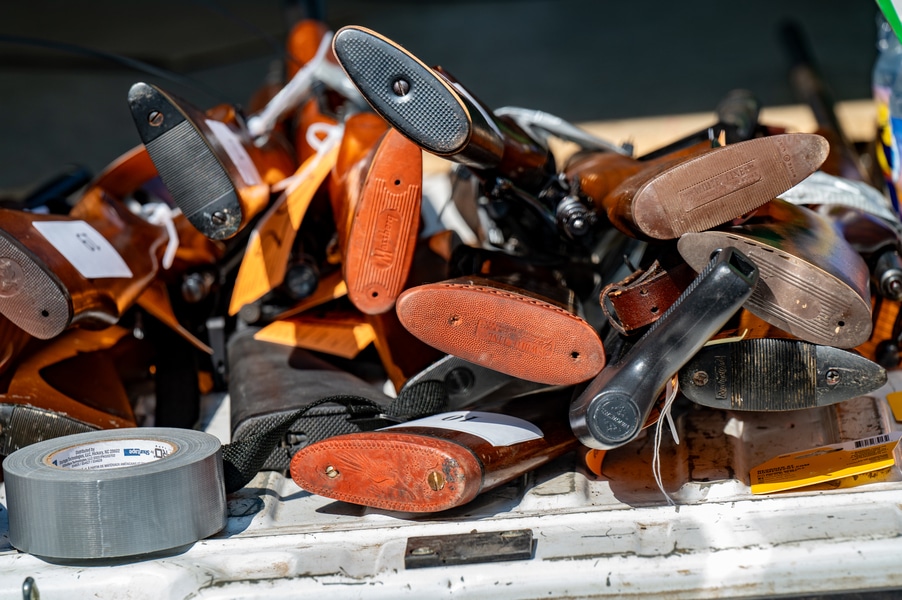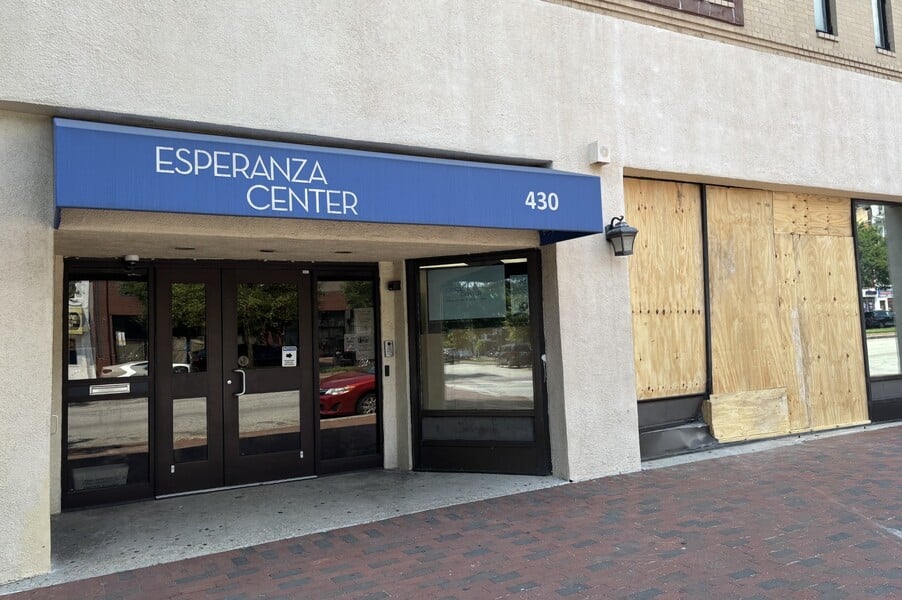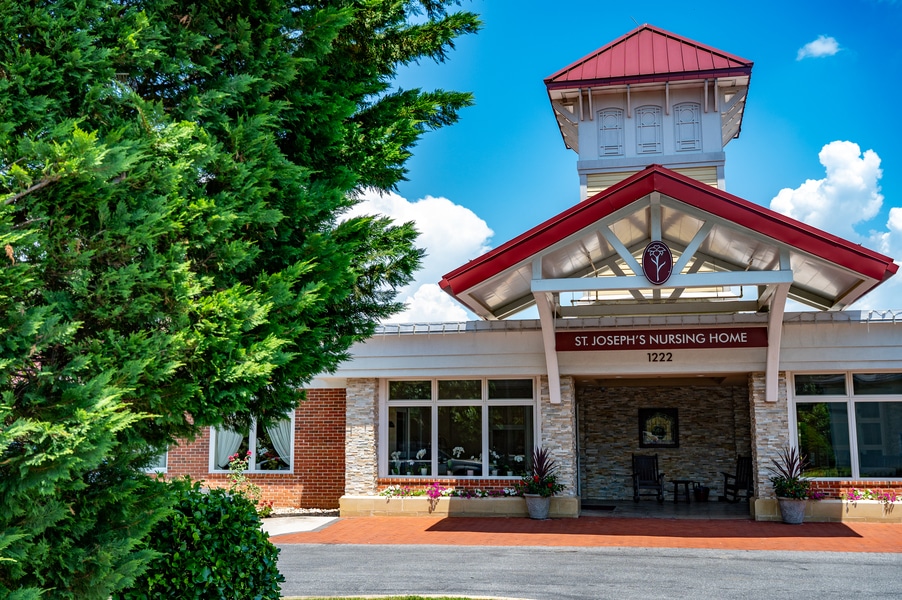Already there’s at least one billboard on Interstate 83 advertising cannabis as if it’s beer.
But unlike the repeal of Prohibition in 1933, it’s not the case that happy days are here again. Instead, people familiar with addiction up close expect an ugly new surge of addiction and other health issues.
On July 1, Maryland became one of 23 states, along with the District of Columbia, to legalize recreational cannabis use. Adults can legally possess up to 1.5 ounces and cultivate up to two plants. State licensing for cannabis-related businesses begins next year; applications will be released in September.
Experts in medicine, addiction and theology told the Catholic Review that legalization doesn’t make something morally permissible, nor does it change moral truth. The possible damage to public safety and health will take years to ascertain, they said.

“The law doesn’t determine morality,” said John-Mark Miravelle, a professor of systematic moral theology at Mount St. Mary’s Seminary in Emmitsburg, whose 2020 book “How to Feel Good and How Not To” discussed the ethics of using marijuana, alcohol and mood-altering drugs.
Marijuana is not specifically mentioned in the Catholic catechism – paragraph 2291 mentions the use of drugs inflicting “very grave damage” outside a therapeutic setting.
But Miravelle said the teaching is explicit: “To deliberately manipulate them chemically defeats the intrinsic purpose of human nature. To use traditional language, it’s sinful.”
In June 2014, Pope Francis told a drug enforcement conference, “Attempts, however limited, to legalize so-called ‘recreational drugs’ are not only highly questionable from a legislative standpoint, but they fail to produce the desired effects.”
“The way I see this playing out, the closest thing I can think of is what happened with tobacco and cigarettes,” said Dr. Enrique Ovideo, a psychiatrist who specializes in addiction who is medical director for Catholic Charities of Baltimore’s addiction treatment services.
“The harm wasn’t shown. The public was not adequately educated.” The tobacco industry “knew of the harm of it, but chose to hide it to get even more people smoking as possible. It took … decades to catch up, minimizing the marketing to children.”
Data points to an inevitable addiction spike, he said.
“The two factors that predict substance use are access and cost. As access increases and cost decreases, we will see an increase in cannabis use and cannabis use disorder.
“Approximately 22 percent of people who use cannabis will go on to develop cannabis use disorder. The number is lower for people who use less than monthly, but higher for people who use daily. About 20 percent of adolescents developed cannabis use disorder within four years of beginning cannabis.”
And this will also be easier since states including Colorado, Oregon and Washington “have seen substantial drops in the price of cannabis since legalization. It may not be possible to assess the full public health impact of legalized cannabis until the 2030s,” Ovideo said.
To retired Monsignor James Farmer, a former pastor of St. Thomas Aquinas in Hampden, where he supervised Narcotics Anonymous meetings, all of this is predictable.
“Marijuana is a gateway drug. When people have addictive personalities, they seek more highs, not less,” he said. It’s still legally classified as a Schedule 1 substance, meaning there is a high potential for abuse.
Monsignor Farmer, who earned a law degree in 1972 and is a former Baltimore City public defender, decried the culture telling people they can’t have a natural high.
“This gives them a false sense of pleasure,” he said. “Not to correct the problem, but to intensify the problem, is a false message.”
It’s “heartbreaking” that the state will not understand this, he said, noting that “a lot of people are going to make a great deal of money destroying young people’s lives.”
In July, the first month of legalized recreational use, Marylanders spent $87.4 million on cannabis. Some state officials predict a billion-dollar industry, similar to other states, by 2025. Recreational users are taxed at a 9 percent rate, and 35 percent of that money goes into a community reinvestment fund.
Some social justice advocates have hailed the legalization of the recreational use of the drug, noting that when it was criminalized, minorities were incarcerated for illegal possession at a higher rate than whites. According to the American Civil Liberties Union, marijuana use is roughly equal among Blacks and whites across the country, yet Blacks are 3.73 times as likely to be arrested for marijuana possession.
Yet, many remain concerned about the impact on health. Ovideo said the first negative effects will be seen with young people and pregnant women.
“Since the brain does not fully mature until about age 25, cannabis use can have negative effects on the developing brain and increases the risk of developing mental health conditions, including schizophrenia,” he said. “Cannabis use during pregnancy has been linked to low birth weight and negative neurobehavioral effects in childhood.”
A recent study by the National Institutes of Health “found that young men, ages 21-30, may be at particularly high risk for developing schizophrenia when using cannabis regularly, and that up to 30 percent of new cases of schizophrenia were linked to cannabis use,” he added.
Other data shows an increase in car accident rates in states that have legalized cannabis, he said, as well an increase in emergency room visits from accidental ingestion of cannabis products by children.
For several years, Catholic Charities has been providing staff training on therapeutic techniques to help people think about their cannabis use, including cognitive behavioral therapy, dialectical behavioral therapy and motivational interviewing, Ovideo said. He noted that there are no medications currently approved for the treatment of cannabis use disorder, but some are in development.
And it still comes down to moral truth, Miravelle said.
“Our feelings of pleasure were made to be … the preface to something good,” the theologian said. “Recreational drug use short-circuits the brain to make us feel good for no reason at all.”
Maryland cannabis law facts
- Public places: While recreational use of cannabis by adults over 21 is now legal in Maryland, smoking cannabis (and hemp) is prohibited in any public place, including outdoor spaces and indoor spaces open to the public.
- Federal property: Because cannabis remains illegal at the federal level, no one may possess cannabis on any federal property, such as a national park.
- U.S. mail: Mailing cannabis in or out of the state is illegal.
- Behind the wheel: Using cannabis while driving (by a driver or passenger) and impaired driving remains illegal under Maryland law.
Source: Maryland Cannabis Administration
Read More Local News
Copyright © 2023 Catholic Review Media






